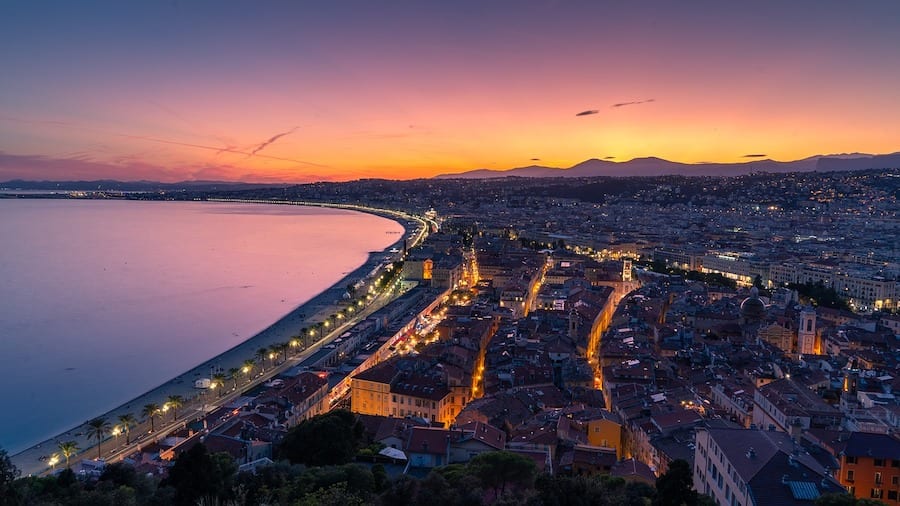Since 2nd January, the French Riviera has been under a strict new curfew, with all shops ordered to close and people told to head home by 6pm the latest.
As Covid cases climb in the Alpes-Maritimes post-holiday, the region is one of 15 French departments to impose a strict new 6pm curfew on residents in an attempt to curb the spread of the virus. The government says the decision will be reassessed in a week.
Though deemed useless by some elected officials in the area, the measure has been undertaken with the support of Nice mayor Christian Estrosi as the incidence rate in his city continues to climb. The number of cases in the Alpes-Maritimes has hit 295 per 100,000 inhabitants according to Public Health France in the week of 22nd to 28th December, compared with the national rate of 124 per 100,000.
The same exemptions and certificates already in use for the old 8pm curfew are still valid, though adjusted for time. The government has also said the curfew’s ending hour will remain at 6am.
For businesses, this means that all shops, personal service establishments and the like will have to shut their doors at 6pm. There will be no take-away options after 6pm, but deliveries are still available. Therefore, restaurants offering this service will be able to carry on with these under the new rules.
With regard to childcare facilities, educational establishments, extracurricular activities and vocational training centres, they are able to allow access to the public past 6pm. Staff, school transport drivers, children, pupils and parents are covered by the “professional activity, education and training” exemption on the travel certificate. This includes extracurriculars attached to schools only.
For those travelling to and from work or for other professional activities, they will be allowed to carry on as usual, though they will need to have a travel certificate citing “professional activity”.
Outdoor leisure and sport activities must now cease by 6pm. This means no fishing, running or walking on the Promenade, or outdoor games after this hour. The same goes for indoor sports.
Estrosi, who was interviewed December 30th by France Inter, applauded the decision, saying, “Olivier Véran (France’s Health Minister) made the wise decision to have a time for debate with local elected officials, including me. Each territory has its own specificity. We are on the border with Monaco and Italy.”
He went on to say, “We have an airport which has gone from 20 flights a day to 120 flights, that is to say 50% of the rate of December 2019. All this has brought back a significant circulation of the virus that we must contain.”
Estrosi had met last week with a new health council comprised of doctors, immunologists and infectious disease specialists to discuss the situation. The end result was a consensus that an earlier curfew was the right thing to do. But the measure has been unpopular with many officials in the area who had hoped for better border controls and a faster roll out of the vaccine. There was also question as to whether this kind of curfew will actually do any good or if it is just another confusing decision made by politicians who are at a loss as to what to do next.
The police see it differently. For them, this earlier curfew means it is easier to keep people who are flouting the rules off the streets. It also means it is harder for friends and family to congregate when they should not be.
For now, all people can do is wait and see if the new rules actually do bring case numbers down or if it is simply another band-aid being placed on a gaping wound.
Photo of Nice, source Pixabay
